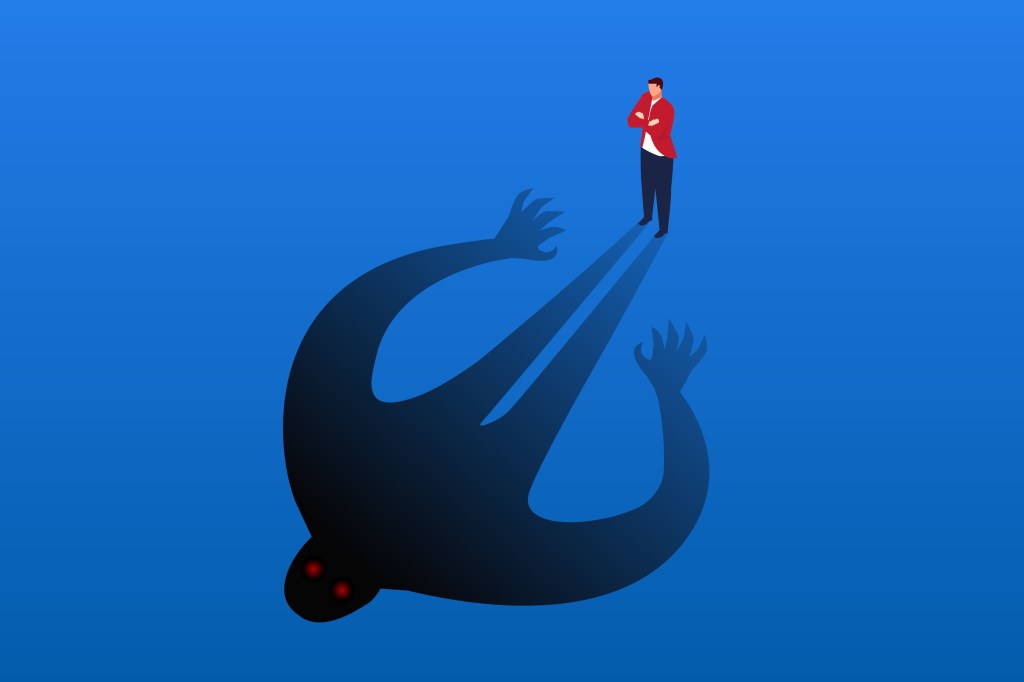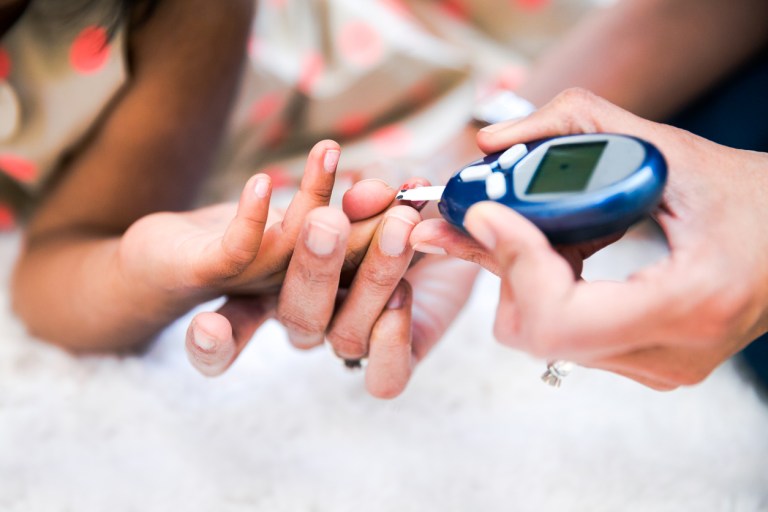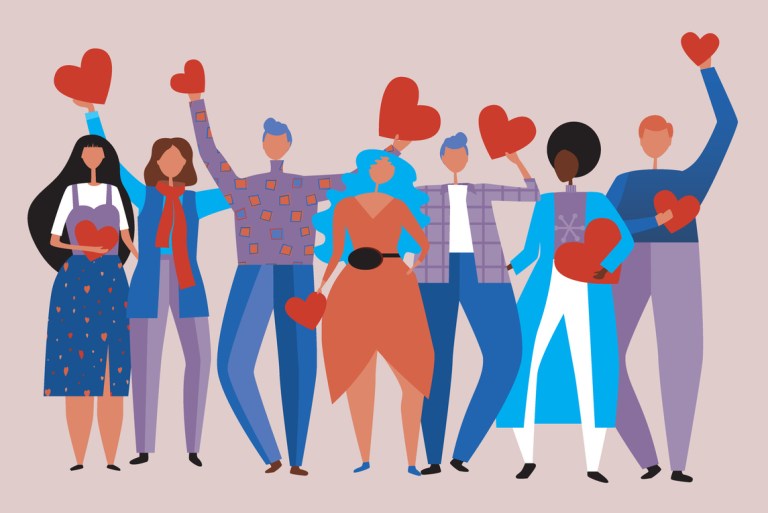You might be doing the dishes, taking a shower, or walking the dog when it happens: Seemingly out of nowhere, your mind circles back to those old, deep-seated feelings of shame about a time you wronged someone or felt intense embarrassment, even though you thought you’d moved on. You may even get frustrated with yourself for dwelling, wondering why you can’t just let it go.
Self-forgiveness sounds simple in theory but can be much harder in practice, and a recent study out of Flinders University has dissected why. Researchers found that forgiving yourself may be an ongoing, nuanced process, better understood as a “mixed emotional experience” rather than a clear-cut one, in which negative feelings may never dissipate entirely.
“Self-forgiveness isn’t about just moving on or forgetting what happened,” lead author Lydia Woodyatt said in a press release. “People who forgave themselves still thought of the events from time to time, and still sometimes felt shame or guilt, especially if they were in a situation that reminded them of the event. The difference was, the emotions were much less intense and frequent, and the event no longer controlled their life.”

So if you’re having trouble releasing guilt, know that it’s not just you — forgiving yourself is a much more complicated journey than meets the eye. Read on to unpack further insights from the research team about self-forgiveness and get advice from Fred Luskin, director of the Stanford University Forgiveness Projects, on how to take tangible steps forward when you’re stuck in the shame spiral.
Why It’s So Hard to Forgive Yourself
The researchers noted that there are two somewhat conflicting aspects of self-forgiveness that make it especially difficult: the mental part that involves taking responsibility for the wrongdoing, and the emotional component of releasing negative feelings about yourself. According to the study, the line between being able and unable to self-forgive isn’t obvious — and the process certainly isn’t linear.
To figure this out, the research team analyzed stories of “perceived wrongdoings” shared by 80 people, some from decades ago. They found that many of those who couldn’t self-forgive felt that the event seemed recent to them no matter when it had occurred, often because they’d continually replay it in their mind.

Another reason participants struggled to let go of guilt had to do with an inability to accept themselves as inherently flawed people. Some expressed hopelessness about the possibility of rectifying the situation, discrepancies between what they did versus the person they thought they were (or should be), or a tendency to self-punish as a way of continuing to hold themselves accountable.
To complicate things even more, the researchers found that we may feel shame even if we haven’t directly done something wrong. When respondents assumed a caregiving role to someone in their lives — like a parent or child — they often felt a heightened sense of responsibility when something bad happened to the person they were caring for, even if they had no control over it.
And when the participants were victims in certain situations (like an abusive relationship), they often struggled to stop blaming themselves for “a lack of foresight, knowledge, or action,” the authors wrote. The research team also pointed out that victims simply being told that the situation wasn’t their fault may backfire, since this could highlight their lack of control at the time.
But according to Woodyatt, our emotions are a clue for how we can move forward. “Emotions are the hurt that indicates the site of the possible injury, if you will,” she said in the release. “In the case of shame, guilt, and self-condemnation, this is about our brain helping to work through moral injury — that is, core threats to psychological needs like agency (such as a sense of choice, control, and autonomy) and our need for belonging (such as being an appropriate group member or relationship partner), and live according to those shared values.”
How to Give Yourself Grace
Self-criticism itself isn’t always a bad thing. As clinical psychologist Ellen Hendriksen explained to The Guardian, “It is necessary that we each have this inner critic because a healthy dose of self-doubt helps us monitor ourselves and our behavior.” She added: “A total lack of insecurity is actually a sign that things have gone wrong, so the few people who have none can be classified as narcissists or psychopaths — and that’s not what we want.”
And yet, those who are prone to feeling consistent shame may suffer negative effects on their mental health, such as depression, certain anxiety disorders, and low self-esteem. So if you’d like to learn to self-forgive, try making a concerted effort to focus on both the present and the future — something the Flinders University study identified as an action associated with success.
Here are a few research-backed steps you can take if you’re stuck rehashing past events, according to Luskin: Interrupt your rumination with exercise, or “with deep slow belly breathing for three breaths,” focusing on your stomach instead of your thoughts. He also advises forcing yourself to sink into your thoughts for 10 minutes at the same time each day for a week. “It shows people how unpleasant it is and helps them see [that] rumination can be somewhat under their control,” he wrote in an email to Nice News.
Luskin emphasized that taking accountability is a key part of self-forgiveness — and it’s “simpler than one thinks,” he said. “People need to feel genuine remorse for what they did. Guilt [in the] short term is a healthy response, as is concern for anyone we hurt.” The study authors backed this up, noting that those who forgave themselves accepted their shortcomings and responsibility for their actions.
Then, Luskin said, you can “offer a sincere apology claiming responsibility for the bad action and concern for its negative effect on the other person,” and make amends if you can. He recommends taking positive steps to reduce the chance of repeating the wrongdoing in the future.
“Did you not get to your daughter’s championship basketball game until the second half?” Luskin and his co-writer, forgiveness coach Lyndon Harris, wrote for UC Berkeley’s Greater Good magazine. “Make it right by volunteering to be next year’s assistant coach.” Then, Luskin told Nice News, you can say, “‘I forgive myself, as I have done what I can to make it right.’ You let yourself off the hook even if no one else does.”
As for the victims mentioned in the study who felt guilt even when they weren’t at fault for something, Luskin said they may need to seek help to improve their self-esteem. “If you find yourself taking blame when [you] did nothing wrong and a wrong was done to you, the important thing is to be honest if that is a pattern for you,” he said. If it is, he noted that you may want to talk to a friend or therapist to learn how to break the cycle.

But for one-off situations, “remind yourself that it can be hard to be vulnerable to others’ ability to hurt us,” he said. “Sometimes in order to resist that vulnerability, we blame ourselves to try to control unpredictable life. Sometimes we simply have to accept that [stuff] happens and it has nothing to do with us.”
RELATED: The Power of Forgiveness: Why a Psychologist Advises Letting Go (and a Free Workbook to Get Started)












